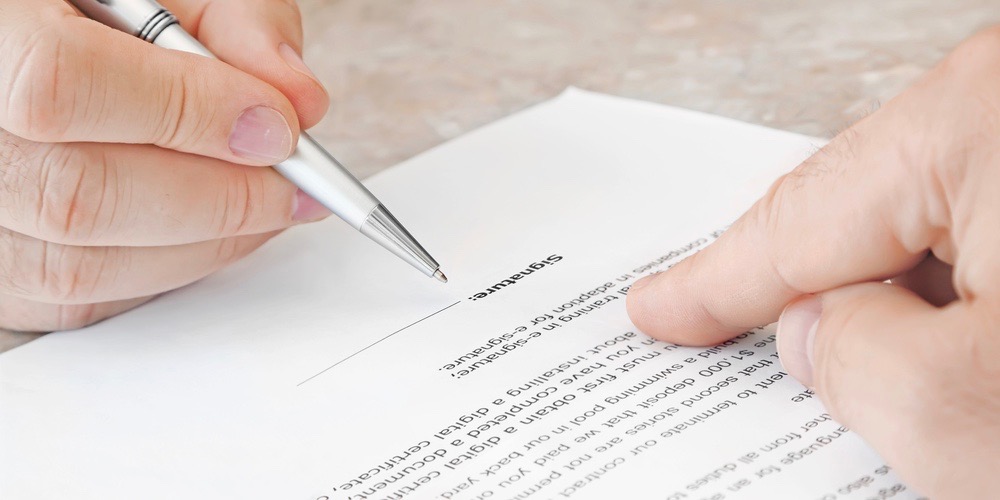SBA loans are a coveted type of financing for small business owners. But is there an SBA loan credit score minimum?
Even though the program is meant to help more small businesses get financing, it does have strict requirements for qualifying—including a good credit score.
But where does the U.S. Small Business Administration draw the line on SBA loan credit score minimum? And what other requirements will make or break a small business’s ability to secure an SBA loan?
It’s a little more complicated than you might think, but keep reading and we’ll break it all down for you.
What’s an SBA loan?
An SBA loan is a long-term, low-interest small business loan partially guaranteed by the government.
Under the SBA’s various “SBA loan” programs, you can borrow money for nearly any business purpose—including adding to working capital, purchasing inventory or equipment, refinancing other debts, buying real estate, or even funding the acquisition of other businesses.
SBA Loan Credit Score Minimums
First, it’s important to note that the Small Business Administration does not set hard-line minimums when it comes to qualifying for a loan.
Rather, the bank you work with to secure the loan will assess your creditworthiness based on a number of factors and decide whether or not you qualify for the loan from there.
That said, it will be very difficult to qualify for an SBA loan if you have a credit score below 620, and most lenders want to see a credit score between 700-800.
Of course, not all SBA loans are created equally, and some might have harder or softer credit score requirements.
Different Credit Score Requirements for Different SBA loans
Below is a breakdown of the SBA’s common loan programs and their relationship to credit scores. Note that these SBA loan credit score minimum are estimates and not set-in-stone rules.
- SBA 7(a) Loan: This is the most common type of SBA loan and generally what people think of when they think of an SBA loan. It’s a general term loan for businesses that can be used for almost any business purpose—they’re also the toughest to qualify for, with an estimated SBA loan credit score minimum of 640.
- SBA 7(a) Express Loan: Designed for small businesses that need a smaller amount of cash (under $350,000) in a quicker amount of time, the express loan is not much easier to qualify for and has very similar qualification requirements to the regular SBA 7(a) loan.
- SBA CDC/504 Loan: This program is designed to help businesses purchase owner-occupied commercial real estate or heavy equipment. Most people who qualify have a 680+ credit score minimum and put a 10% down payment on the purchase.
- SBA CAPLines Program: This is essentially a line of credit designed to meet short-term or seasonal working capital needs. You can generally qualify with a credit score of 660 or higher with short-term collateral such as unpaid invoices.
- SBA Export Loans: Specifically designed to help small businesses fund new exporting operations with cash flow solutions that allow more flexible terms to international customers. As long as you can prove a viable export operation, you can qualify for this loan with a credit score minimum of 660.
- SBA Microloan: Very small loans (up to $50,000) have softer credit score requirements (a minimum of around 620-640). You’ll also need to provide collateral that could cover the loan amount.
You can learn more about the different SBA loan types here.
As you may have already deduced, meeting SBA loan credit score minimums aren’t the only thing that will get you through the door with an SBA loan.
See below for what else you should have in order before applying for an SBA Loan.
How to Qualify for an SBA Loan
As mentioned, securing an SBA loan is no walk in the park.
What else is required of you to qualify?
While the most important factor will be your credit score, a lot of businesses—including small or newer businesses—can qualify for an SBA loan.
The second most important factor is to be prepared: SBA loans require a lot of time, energy, attention, and documentation.
You can’t just apply to and receive the funding in a matter of days—even for “Express” loans—but it is a loan you can use grow your business, refinance your other debt, and more at the lowest available rates.
In addition to an average credit score of 680, most customers who were approved had:
- An annual revenue of over $180,000
- Had been in business for over four years
But again, these aren’t hard and fast rules. These are a few other requirements you need to consider before you start the process to apply for an SBA loan.
Government Qualifications vs. Bank Qualifications
Here’s the thing about SBA loans—not only do you have to live up to the Small Business Administration’s guidelines for qualifications, you’ll also need to qualify with the bank. This means there are a lot of requirements beyond the SBA loan credit score minimum.
Different banks have different qualification requirements, but the government requirements are a constant:
1. Be a U.S. business.
This means that your business must be registered as such in the United States and it must do business within the United States. It must have a physical location in the U.S. or its territories. Pretty simple.
2. Invest in your own business.
The SBA requires that the owner has invested their own time and money into the business.
This ensures that the you’re serious about the business and have some personal stake in its success.
3. Meet SBA size requirements.
In order to qualify as a small business, your company needs to meet the government’s definition of a small business.
What’s the government’s definition of a small business? What technically qualifies as “small?”
It depends on your industry. The SBA provides exhaustive resources to help you figure out how to classify your business’s size based on your industry.
In general, your business is typically considered “small” if you have under 500 employees—though there are exceptions. But keep in mind that some industry size requirements are based on average annual receipts.
It’s best to consult the SBA guide to determine your business classification.
4. Be rejectable.
This may sound counterintuitive, but first, your business must have been previously turned down by private lenders.
That’s right—and this is exactly why the SBA loan process can be so harrowing. Your business will need to try to get a loan from a bank or other financial institution or lender directly—and fail.
Why?
It’s the law. The SBA can’t guarantee loans to businesses that can obtain the money they need on their own. So you have to apply for a loan on your own and be turned down.
5. Meet specific loan criteria.
As mentioned, the SBA has a variety of loan programs that serve a multitude of purposes.
Check the requirements for those specific loans and determine your eligibility before applying.
In other words, if you’re seeking an SBA Export Loan, but you don’t run a business that carries out exports, than that is probably not the right loan for you.
Or, if you’re seeking a loan for $200,000, the general SBA 7(a) loan may not be the right fit. An SBA 7(a) Express Loan, however, would be an excellent fit.
6. Apply for a loan through an accredited lending institution.
When all is said and done, once your meet the SBA qualifications, it’s time to apply for the loan through your preferred lending institution.
However, it needs to be a an accredited bank, credit union, or other financial company that’s set up to process SBA loans.
Even better, the SBA has designated some lenders that can approve loan requests on behalf of the SBA, which can expedite the loan process.
These banks are known as SBA Preferred Lenders. The SBA has a full list outlined here, but know that it should include many of the large commercial banks ubiquitous around the country such as:
- Wells Fargo: On the list of the SBA’s most active lenders. In 2016, Wells Fargo approved 1,554 SBA loans and lent almost $500 million in SBA 7(a) loans.
- Bank of America: Known for robust small business lending.
- JPMorgan Chase: Lent a smaller amount but to a still high number of businesses (over 700).
But also some you may never have heard of:
- Celtic Bank Corp.: This bank lends over $100 million to SBA-backed businesses each year.
- Live Oak Banking Co.: The second largest SBA lender in the country after Wells Fargo, with a whopping $362,614,30 lent.
- The Huntington National Bank: A smaller bank that’s been on a top 10 SBA lenders list for over eight years.
Remember that every bank has its own SBA loan credit score minimum and other requirements. And even though you might qualify in the eyes of the government, the lender you choose might not see it that way.
So, it’s important to shop around and compare what you can get from different institutions.
To do that, you certainly want to be very prepared with all the right documentation.
Getting Ready to Apply for an SBA Loan
Beyond meeting the SBA loan credit score minimums, qualifying for an SBA loan is no abstract idea—you’re going to need to physically show that you qualify.
And these are the exact documents that’ll be required of you if you apply for an SBA loan. You don’t want to forget any of them!
- Personal background and résumé: Give lenders and idea of who you are and how your previous work experience makes you qualified to run your business. They also want to know logistical stuff like addresses, other names you’ve used, educational background, and any criminal history.
- Business plan and use of loan: You’ll want to show lenders that you know where the business going and how the funding you need fits into it. Be very detailed and include marketing strategies and management structures.
- Personal and business credit report: After reading this entire article, this must seem pretty obvious! You need to obtain your credit scores from one of the institutions that measures the scores.
- Personal and business income tax returns: This is where lenders scrutinize your financial history. Be ready to have two to three years worth of tax returns.
- Financial statements: These are just for your business. Make sure you have these ready:
- Balance sheets: A bare bones measure of what you have and what you owe.
- Profit and loss statements: One step further, these statements demonstrate your monthly income and expenses.
- Business debt schedule: Outlines all the debt your business currently owes.
- Collateral: You likely need this if other areas of your application are weaker (like your credit score). Have your assets evaluated and assessed, and make it clear to the lender what you’re willing to give up should you default on your loan.
- Legal documents: Formal documentation that you are in fact a registered business and can run your business legally where it is located within the United States. This includes all licenses and leases.
Learn more about SBA loan requirements here.
***
While SBA loans are tough to qualify for, and it can sometimes feel hard to nail down exactly what you need in order to qualify, you should now have a sense of what SBA loans require—including SBA loan credit score minimums.
Work with a qualified small business lending specialist to see what kind of loan is right for you, and if the SBA is a good route, go for it!
The post Is There an SBA Loan Credit Score Minimum? appeared first on Fundera Ledger.
from Fundera Ledger https://www.fundera.com/blog/sba-loan-credit-score-minimum


No comments:
Post a Comment